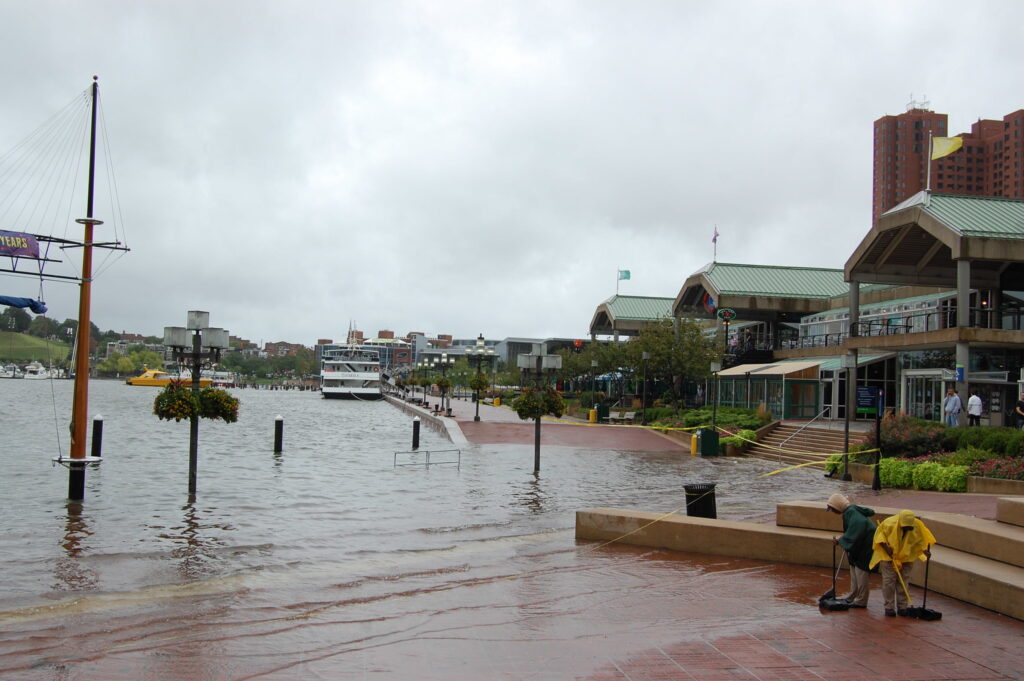
The problem
The increased intensity of rain storms can exceed the capacity of an area to absorb water, resulting in street flooding. The rising level of the ocean can cause catastrophic flooding during coastal storms, as well as “sunny day flooding” by the shore during exceptionally high tide events, such as at full and new moons. Floods lead to direct loss of life and property, illness from waterborne germs, and mold.
How do the issues you study show up in Baltimore?
In 2018, a series of summer thunderstorms overwhelmed the storm drain system in southwest Baltimore, resulting in flash floods that inundated the area surrounding Frederick Avenue in West Baltimore. Walls and floors, possessions, and electrical systems were damaged, and basements were flooded. Some people abandoned their houses because mold developed after the flood. Some residents lacked flood insurance, and more lacked coverage for mold damage. Storms in other areas of Baltimore have had similar effects.
Guiding questions for research
- How can we effectively partner with communities to identify priorities and co-develop solutions to flood and water quality hazards?
- How do we design both traditional stormwater infrastructure and approaches that incorporate vegetation to slow the flow of water, together with host neighborhoods, to handle flood water? Can we design flood control measures that also provide benefits such as improved air and water quality, more tree canopy, less heat, and improved perceptions of safety?
Sample project
An assessment of data from calls to Baltimore’s 311 line indicates that flooding, clogged drains, sewer water in basements, and stormwater in basements occur throughout the city, with some areas experiencing these issues more than others. The data suggests that residents of socially vulnerable neighborhoods may not use 311 at the same rate as other neighborhoods. This may affect how the city responds, amplifying environmental inequities. Additional outreach and tools may be needed to truly understand the impact of flooding and to provide the services and support people need. BSEC will use these data to verify where flooding occurs, validate our models that predict flooding, and determine where we should monitor. BSEC will also encourage the use of 311 and the MyCoast app (https://mycoast.org/md) to report flooding in its community outreach.
Team co-leads
Larry Band, University of Virginia; Shirley Clark, Pennsylvania State University; Claire Welty, UMBC; James Hunter, Morgan State University

